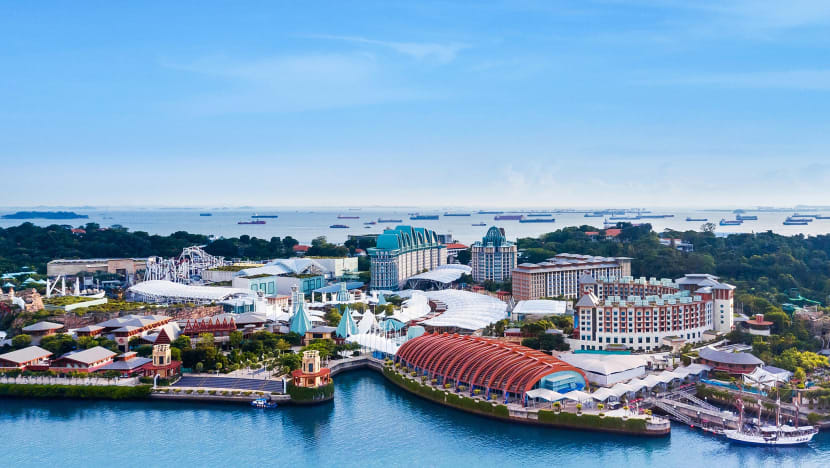Resorts World Sentosa and NUS set up laboratory for biodiversity conservation and decarbonisation research

A view of Resorts World Sentosa. (Photo: FacebookResorts World Sentosa)
SINGAPORE: Resorts World Sentosa (RWS) and the National University of Singapore (NUS) have announced the setting up of a laboratory for biodiversity conservation and decarbonisation research.
RWS and NUS launched a 5-year applied research partnership on Wednesday (Jan 5) to set up a collaborative RWS-NUS Living Laboratory, they said in a joint media release.
RWS has committed S$10 million in funding to support the Living Laboratory and its research.
The laboratory seeks to contribute towards the Singapore Green Plan 2030, as well as Sentosa Development Corporation's plans to transform the island into a carbon-neutral destination by 2030, said RWS and NUS.
The launch of the laboratory places RWS and NUS at the "forefront" to deliver on Singapore's goals of achieving long-term success and sustainable tourism, said RWS and NUS.
RWS CEO Tan Hee Teck said the living laboratory "underscores" its commitment to making RWS a sustainable destination for Singaporeans and travellers.
"We look forward to working alongside NUS to expand research and develop innovative solutions that bring us closer to our sustainability goals and reinforces Singapore’s position as a sustainable tourism destination," said Mr Tan.
President of NUS Professor Tan Eng Chye said he is confident RWS and NUS will "co-create many innovative and transformative" research outcomes that will enhance biodiversity conservation, environmental sustainability as well as decarbonisation.
LIVING LABORATORY PROJECTS
The RWS-NUS Living Laboratory will focus on two research areas - biodiversity conversation and education, and decarbonsation and nature-based solutions.
The marine biodiversity conversation project will bring together the university's research capabilities in marine science and the upcoming Singapore's Oceanarium public education and outreach expertise.
It aims to enhance biodiversity conversation in and around Singapore's Southern Islands.
RWS and NUS said the laboratory will be developed into a "powerful knowledge platform" for marine outreach and education.
"It aims to position Singapore and (the Singapore Oceanarium) as a thriving hub for the conservation and restoration of vulnerable marine organisms and habitats," they said.
The RWS-NUS Living Laboratory will focus on the following key initiatives:
1. Developing a holistic biodiversity programme for the Coral Triangle
The laboratory aims to play an active role in the conversation of the Coral Triangle, a marine area located in the western Pacific Ocean with the highest coral diversity in the world.
2. Implementing rewilding programmes to restore marine biodiversity in Singapore
The laboratory will identify key marine species under threat in and around Singapore, and implement programmes to restore the health of these populations in the country's waters.
3. Explore the role of Dolphin Island in supporting research and education
The programme will explore how the activities of Dolphin Island can support marine conservation research and education in Singapore.
4. Interdisciplinary research on the role of nature in health and wellness
The laboratory aims to leverage on the Singapore Oceanarium to explore "cutting-edge" research into the potential benefits of nature experiences on human health and wellbeing, which may be beneficial to mental and physiological wellness.
Through the research programmes, RWS will contribute "first-hand" in the conservation of vulnerable native marine organisms and the restoration of critical habitats.
The Living Laboratory will also develop "critical decarbonisation and integrative nature-based solutions" across multiple domains including energy, water and waste.
"These areas are of strategic relevance to RWS’s business and are also important areas of research to position Singapore as a sustainable tourism destination," said RWS and NUS.
One potential project is to devise ways to cool urban spaces, they said. "Innovations" will be developed and "test-bedded" at RWS properties and adapted across a variety of environments and properties.




No comments
Share your thoughts! Tell us your name and class for a gift (: